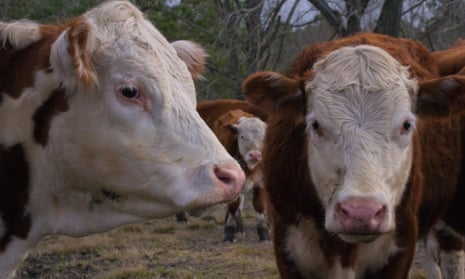Three cows swept off an island during the raging storm of Hurricane Dorian have been located on North Carolina’s Outer Banks after apparently swimming four miles during the storm.
The extraordinary swimming bovines were grazing on their home of Cedar Island when the giant storm hit on 6 September, generating an 8ft “mini tsunami” that swept away wildlife, including 28 wild horses and about 17 cows from the island’s herd.
They were presumed dead, but Cape Lookout National Seashore staff spotted one of the cows on another barrier island a month after the storm. That sighting was followed by two more, apparently grazing peaceably. A picture of the rangy-looking trio is now on Facebook.
Cows are recognized as adept swimmers comfortable with covering a few hundred yards. But swimming miles of open water in a hurricane is outside their general range of expertise.
Cape Lookout Park spokesman BG Horvat said the animals were lucky not to have been swept out into the Atlantic.
“I’ll say it’s about four miles across Core Sound,” Horvat told McClatchy news service. “Remember, the cows and all the horses were swept away with the water surging back. Who knows exactly, but the cows certainly have a gripping story to share.”
Locals are now working on a plan to recover the animals – presumably without making them swim.
